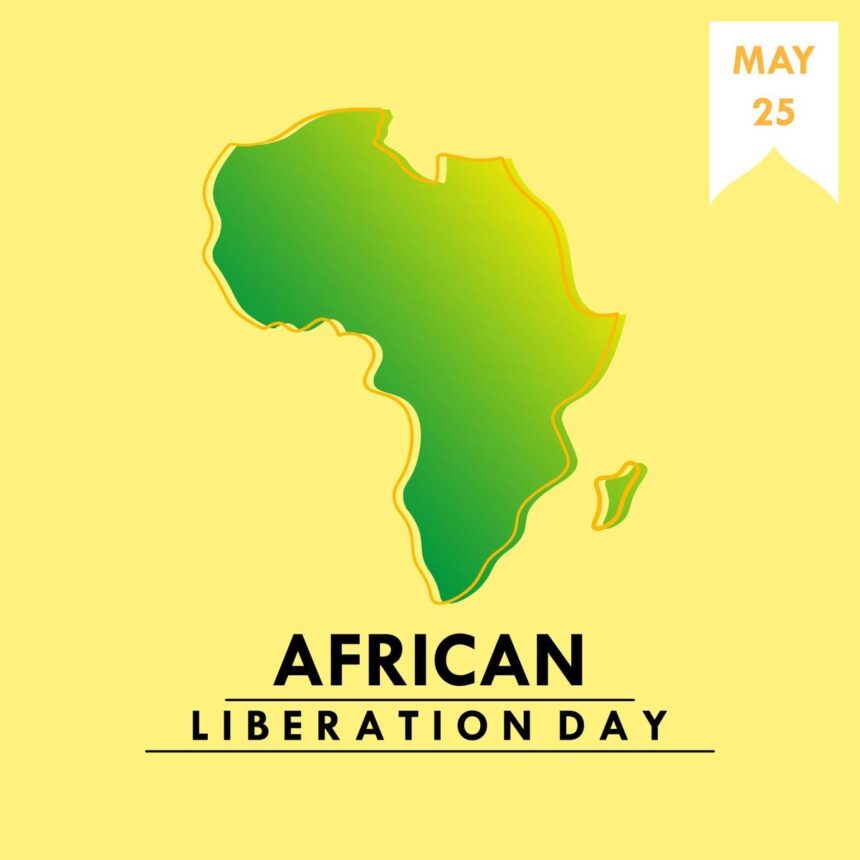🌍 Introduction: Why African Liberation Day Matters More Than Ever
Every May 25th, millions across Africa and the African diaspora mark African Liberation Day—a powerful reminder of a historic movement that reshaped a continent and continues to ignite hope for justice, unity, and self-determination.
- 📜 History of African Liberation Day
- 📅 Timeline of African Liberation Day
- 📊 7 Empowering Facts About African Liberation Day
- ❓ Frequently Asked Questions (FAQs)
- ❓ When is African Liberation Day celebrated?
- ❓ Who started African Liberation Day?
- ❓ Is it a public holiday in all African countries?
- ❓ Why is African Liberation Day important today?
- 🌍 Significance of African Liberation Day
- 🌟 How is African Liberation Day Observed?
- 💬 Heartfelt Wishes and Messages
- 📌 Important Points at a Glance
- 🌱 Importance in Our Life and Society
- 🧭 Daily Life Impact
- 🎯 Conclusion: A Day to Remember, A Struggle to Continue
But this day is not just about remembering the past. It is also a celebration of resistance, a call for solidarity, and an ongoing struggle for human dignity. Whether you’re African or not, African Liberation Day echoes loudly for anyone who believes in freedom, equality, and identity.
Let’s explore the history, facts, and significance of this empowering day and why it remains relevant in our modern lives.
📜 History of African Liberation Day
African Liberation Day traces its roots back to April 15, 1958, when the first Conference of Independent African States convened in Accra, Ghana, under the visionary leadership of Kwame Nkrumah. The event brought together leaders from independent African nations and liberation movements, marking the first major Pan-African effort to unite against colonial rule.
Key Historical Milestones:
1958: First conference in Accra; declaration of April 15 as African Freedom Day.
1963: Founding of the Organisation of African Unity (OAU) on May 25 in Addis Ababa, Ethiopia.
1972: African Freedom Day renamed to African Liberation Day by the Pan-Africanist Congress and aligned to May 25.
2002: The OAU transformed into the African Union (AU), continuing the legacy of continental unity and liberation.
📅 Timeline of African Liberation Day
| Year | Event |
|---|---|
| 1958 | Conference of Independent African States held in Ghana |
| 1960s | Numerous African nations gain independence (e.g., Nigeria, Algeria, Kenya) |
| 1963 | Establishment of Organisation of African Unity (OAU) |
| 1972 | Renaming to African Liberation Day by global Pan-African activists |
| 2002 | OAU becomes the African Union (AU) |
| Present | African Liberation Day observed globally as a symbol of decolonization, unity, and Pan-Africanism |
📊 7 Empowering Facts About African Liberation Day
Over 50 African countries have gained independence since the 1960s, making Africa one of the most decolonized continents in the 20th century.
African Liberation Day is observed not only in Africa but also in the Caribbean, Europe, and the Americas by the African diaspora.
The Pan-African flag—red, black, and green—symbolizes the struggle, the people, and the land.
The day also serves as a reminder of ongoing neo-colonial exploitation, corporate looting, and political instability.
Organizations such as the All-African People’s Revolutionary Party (AAPRP) use the day to host political education events.
The term “liberation” is not limited to independence—it also includes freedom from poverty, racism, and inequality.
African Liberation Day predates the African Union Day, making it one of the oldest international observances on the continent.
❓ Frequently Asked Questions (FAQs)
❓ When is African Liberation Day celebrated?
African Liberation Day is celebrated annually on May 25.
❓ Who started African Liberation Day?
It was first declared as African Freedom Day during the 1958 Accra Conference, spearheaded by Kwame Nkrumah, and officially renamed in 1972.
❓ Is it a public holiday in all African countries?
No. While May 25 is a public holiday in some African countries (e.g., Ghana, Zimbabwe), it is not universally recognized as a national holiday across the continent.
❓ Why is African Liberation Day important today?
It reminds us that true liberation goes beyond political independence—it includes economic justice, cultural identity, and Pan-African solidarity.
🌍 Significance of African Liberation Day
🌿 Political Significance
It represents the end of colonial oppression, the formation of independent governments, and the continuing struggle against neo-colonial powers.
💬 Cultural Significance
African Liberation Day promotes pride in African identity, language, and heritage while encouraging cultural revitalization among the diaspora.
🤝 Social Significance
It fosters a sense of unity among diverse African peoples, across borders and ethnic lines, and supports anti-racism movements worldwide.
🧠 Educational Significance
The day provides an opportunity to educate people about colonial history, the African liberation struggle, and current socio-economic challenges.
🌟 How is African Liberation Day Observed?
| Method | Description |
|---|---|
| 🎤 Public Forums | Discussions on neo-colonialism, reparations, and Pan-Africanism |
| 🧑🏫 Educational Seminars | Organized by universities, think tanks, and NGOs |
| 🥁 Cultural Shows | Traditional music, poetry, and storytelling |
| 🪧 Protest Marches | Against global capitalism, military exploitation, and racism |
| 📚 Book Readings | African authors like Chinua Achebe, Ngũgĩ wa Thiong’o, and W.E.B. Du Bois |
| 🖼️ Art Exhibitions | Celebrating African culture and resistance |
| 🌐 Online Campaigns | Hashtags like #AfricanLiberationDay, #PanAfricanUnity, and #May25 |
💬 Heartfelt Wishes and Messages
“On African Liberation Day, we honor the brave souls who rose, resisted, and reclaimed our dignity.”
“May the fire of Pan-Africanism continue to light the path toward true freedom. Happy African Liberation Day!”
“Let’s celebrate not just independence, but the spirit of unity, culture, and identity. ✊🏿”
“Africa is not poor—it’s being looted. May this day remind us of our strength and sovereignty.”
📌 Important Points at a Glance
Date: May 25
Started: 1958, Accra, Ghana
Significance: End of colonialism, unity, decolonization, Pan-Africanism
Observed by: Africans and the global African diaspora
Color Symbols: Red (blood), Black (people), Green (land)
Global Reach: Celebrated in USA, UK, Caribbean, and Canada
🌱 Importance in Our Life and Society
Personal Impact
Inspires a sense of pride in heritage and identity.
Encourages critical thinking about global injustice.
Provides cultural roots and spiritual empowerment for younger generations.
Societal Relevance
Serves as a platform to challenge economic colonization (debt, land grabbing).
Promotes African-centered education.
Strengthens global anti-imperialist movements and racial justice campaigns.
Builds bridges between African nations and the diaspora.
🧭 Daily Life Impact
| Area | Impact |
|---|---|
| 🎓 Education | Awareness of true African history and decolonized knowledge |
| 🏘️ Identity | Promotes pride and confidence in African heritage |
| 💼 Economy | Sparks discussions about self-reliance and resource control |
| 🤝 Unity | Builds Pan-African solidarity and global empathy |
| 📱 Digital Culture | Increases content around African authors, thinkers, and revolutionaries |
🎯 Conclusion: A Day to Remember, A Struggle to Continue
African Liberation Day is more than a historical event. It’s a living, breathing movement—a reminder that freedom is not a moment, but a process.
As we commemorate May 25 each year, we must carry forward the message that true liberation lies in reclaiming not only land—but language, narrative, economy, and soul.
From Accra to Addis Ababa, from Harlem to Haiti, from Nairobi to Nigeria—this day fuels a fire that will not be extinguished until Africa stands tall in dignity and power.
Let’s continue to educate, organize, and liberate—because Africa’s future is not a charity case; it’s a revolution waiting to happen.
✊🏿 Happy African Liberation Day! Celebrate it with purpose, pride, and the power of unity.








